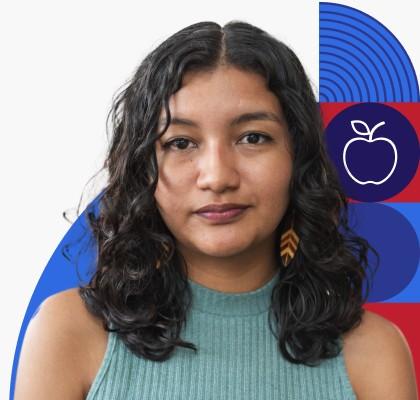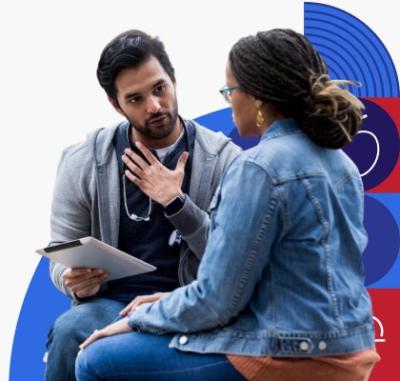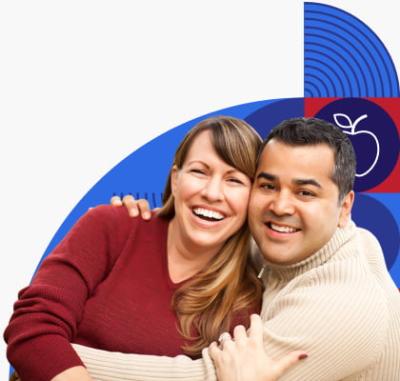Healthy Living
Watch for Warning Signs of Relationship Violence

The Basics
Overview
It can be hard to know if your relationship is becoming unhealthy or unsafe. But there are things you can do to spot the warning signs of relationship violence and get help.
If you think your partner might be controlling or abusive, it's important to:
- Trust your feelings — if something doesn’t seem right, take it seriously
- Learn the warning signs of someone who might become controlling or violent
- Get help — call the National Domestic Violence Hotline at 1-800-799-SAFE (1-800-799-7233 or TTY 1-800-787-3224) to find resources in your area
If your partner is controlling or abusive, it’s better to get help right away. Controlling or violent relationships may get worse over time.
Remember: If your partner abuses you, it’s not your fault.
Definition
What is relationship violence?
Relationship violence is when 1 or both people in a relationship — or in a past relationship — are abusive, controlling, or aggressive toward the other person. Relationship violence can happen in a serious or casual relationship, and it can take place in person or online. Sometimes, both partners act in abusive or controlling ways. Anyone, no matter their gender, age, or sexual identity, can experience relationship violence.
Relationship violence is also called domestic abuse, dating violence, domestic violence, or intimate partner violence. It can include:
- Physical violence — like pushing, hitting, or throwing things
- Sexual violence — like forcing or trying to force someone to do something sexual
- Threats of physical or sexual violence — including threatening to hurt another person or a pet
- Emotional abuse — like embarrassing a partner, keeping them away from family and friends, or speaking or yelling in a way that frightens them or puts them down
- Financial abuse — like taking a partner’s money, controlling how they spend money, or not giving them money for necessary expenses
- Stalking — like watching or following a partner, or repeatedly calling or texting even when you don’t respond
A lot of the time, abuse in a relationship doesn’t start right away — or it gets worse over time. That’s why it’s important to look for warning signs. Get help if your partner is making you feel controlled or afraid — even if they haven’t hurt you physically. There are resources available to help you figure out if your relationship is unhealthy — and what to do next.
Healthy Relationships
How do I know if my relationship is healthy?
In healthy relationships, both partners take responsibility for their actions and work together to sort out problems. In a healthy relationship, both people:
- Feel respected, supported, and valued
- Make decisions
- Have friends and interests outside of the relationship
- Settle disagreements with open and honest communication
- Respect each other's privacy and space
Warning Signs
How do I know if my relationship might become violent?
Relationship violence can start slowly and be hard to recognize. For example, when people first start dating, it’s common to want to spend a lot of time together. But your partner asking you to spend less time with other people can also be a sign that your partner is trying to control your time.
Ask yourself these questions:
- Does my partner disrespect or insult me?
- Does my partner blame me for problems that aren’t my fault, like how they treat me?
- Does my partner make most of the decisions in our relationship?
- Am I ever afraid to tell my partner something?
- Do I ever feel forced to do things that I don't want to do?
- Has my partner ever forced or pressured me to do something sexual with them when I didn’t want to?
- Does my partner promise to change and then keep doing the same hurtful things?
Get more information about the signs of abusive relationships.
What if I’m not sure if my relationship is violent?
It’s okay if you’re not sure — you can still get help.
If you have questions about whether your relationship is safe, call the National Domestic Violence Hotline at 1-800-799-SAFE (1-800-799-7233 or TTY 1-800-787-3224) or chat online with a person who's trained to help. The hotline and chat are free and available 24/7. You don’t even have to give your name.
If you’re in danger right now, call 911.
Health Effects
How can relationship violence affect health?
Any kind of relationship violence or abuse can lead to other serious health problems. These include:
- Injuries or chronic (long-lasting) pain
- Sexual health problems — like sexually transmitted infections (STIs) or pregnancy complications
- Trouble sleeping
- Mental health problems — like depression, anxiety, or post-traumatic stress disorder (a type of anxiety disorder you can get after experiencing something traumatic or harmful)
- Trouble trusting people and building relationships
- Drinking too much alcohol or using drugs
Relationship violence can cause other problems too — like causing a person to miss work or school, or putting children in a dangerous situation.
Take Action
Plan Ahead
Relationship violence is never your fault. But if you think your partner is controlling or abusive, there are things you can do to get help.
Make a plan.
If you're in a relationship with someone who is violent or might become violent, make a safety plan. A safety plan is a set of steps you can take to keep yourself and others (like children or pets) safe if your partner becomes violent. It’s important to have a safety plan whether you’re planning to leave your partner or not.
Protect yourself online.
When you look at information online using a computer, your phone, or a tablet, your device keeps a record of sites you’ve visited. And when you make calls or send text messages from a smartphone, the phone stores that information.
When you use social media, avoid posting personal information, like where you live or work or your current location. Only post information you’re comfortable with other people knowing. And keep in mind that even if your accounts are private, people that follow you can still share information that you post with others.
Follow these technology and social media safety tips if your partner is controlling or abusive.
Get Help
If you think your relationship is unhealthy — or you're worried about your safety — get help now.
Who can I call?
If you need help or have questions about your relationship, call the National Domestic Violence Hotline at 1-800-799-SAFE (1-800-799-7233). You'll be able to find a domestic violence agency near you or talk to a counselor over the phone. If you’re in danger right now, call 911.
Read about what to expect if you contact the National Domestic Violence Hotline.
What kind of help can I get?
Domestic violence agencies can provide:
- Emotional support
- Safety planning
- A safe place to stay in an emergency
- Support finding a job
- Legal help
- Help with housing or money
Can I get help for free?
Yes. Domestic violence agencies offer free services, like hotlines and counseling. They also help people find resources, like housing or lawyers.
Under the Affordable Care Act, insurance plans must cover screening and counseling for domestic and interpersonal violence for all women. If you're a woman, you may be able to get screening and counseling at no cost to you through your insurance plan. Check with your insurance company to find out more.
If you don’t have insurance, you may still be able to get free or low-cost help. Find a health center near you and ask about domestic violence services.
To learn more, check out these resources:
- Free preventive care for women covered by the Affordable Care Act
- How the Affordable Care Act protects you
- Understanding your health insurance and how to use it [PDF - 698 KB]
What if I’m not ready to ask for help or leave my partner?
There are many reasons why it can be hard to ask for help or leave an abusive partner. For example, you might be sharing children or a home with them, you might be afraid of what they’ll do if they find out, or you might not want to get them in trouble.
That’s why it’s so important to get support. Remember, if your partner makes you feel unsafe, there are resources to help you — whenever you’re ready.
What if I think someone else is in a controlling or violent relationship?
You can:
Talk to Your Kids about Healthy Relationships
If you have children, you can help them learn how to have respectful, safe relationships with friends, family, and dating partners. Understanding what a healthy relationship looks like can help protect kids from future relationship violence.
Use these resources to start a conversation about healthy relationships:
Content last updated October 21, 2025
Reviewer Information
This information on intimate partner violence was adapted from materials from the Centers for Disease Control and Prevention, the Office on Women’s Health, and the U.S. Department of Justice’s Office on Violence Against Women.
Reviewed by:
Sarah DeGue, Ph.D.
Senior Health Scientist
CDC Division of Violence Prevention


